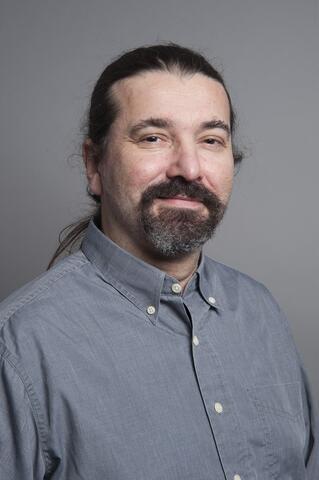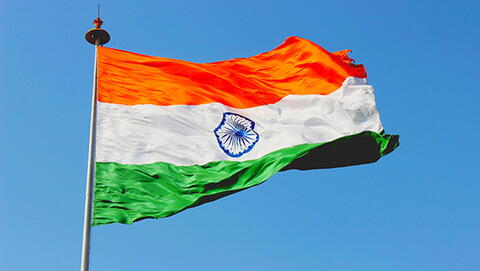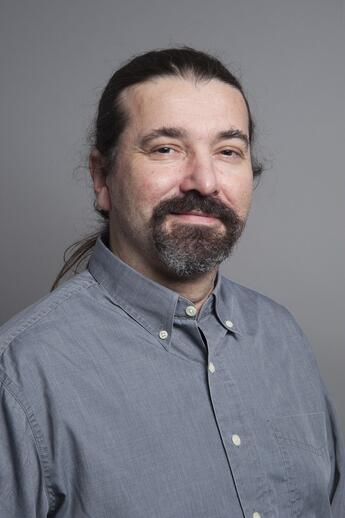

“It’s about using the strengths and resources of both universities to serve a global mission.”
Sorbonne University was recently awarded funding for the creation of a French-Indian campus in the Indo-Pacific, with the Indian Institute of Technology Delhi (IITD) as its primary partner.
Alexandre Escargueil is a professor at Sorbonne University, biomedical expert in Molecular Biology & Genetics, and Pharmacology & Toxicology. He is also driving Sorbonne University’s role in the French-Indian agreement. This month, he will travel to India with a delegation from Sorbonne University to advance this exciting collaboration.

What is the primary ambition behind the creation of this Franco-Indian campus?
First, it was to respond to a call by the French Ministry for Europe and Foreign Affairs and the Ministry of Higher Education and Research to increase the number of student exchanges between France and India. Alongside this, we wanted to create a virtual campus, using shared spaces at each institution, in which we would carry out joint research. Finally, we wanted to foster cultural exchange.
In addition, this project is important for scientific diplomacy, an important value for our university. In this case, science and education will act as a vehicle for those in India who may not typically come to France or Europe. They’ll be able to access new professional networks, collaborators and academic programs, and the same goes for French students and faculty travelling to India.
In what ways do the strengths of France and India align in the field of Health?
In India, healthcare services are growing alongside the rise of its middle-class population, which is demanding new drugs, health systems and the like. In the meantime, here in France there is a big push for digital health and global health, which means approaching healthcare from multiple angles. With our Indian partners, we won’t only be working in life sciences, but also with biomedical engineering, electronics, artificial intelligence and more. Ultimately, it’s about using the strengths and resources of both universities to serve a global mission.
Why is cross-cultural mobility important in this particular case?
France and India don’t really have a common history. Typically, Indian students travel to English-speaking countries, and don’t see France as an obvious option for academic exchanges. France is well known for its style, for example, but isn’t always considered a scientific culture. So we’d like to show that France is a great option for education and research, present our strengths in science, and introduce French and European culture to students and peers in India.
In France, there is a lot of ignorance about India. Many French people don’t understand the extent of the diversity in India – regions, people, climates, and so much more. We have a lot to learn. And our students typically stay in Europe or go to North and South America or Africa for their academic exchanges. We want to encourage them to discover the exciting opportunities that await them in India.
This partnership seeks to develop a veritable ecosystem of research and education. Which actors or groups will this include?
At IITD in India, many academic departments are participating in our collaboration, such as the centers for biomedical engineering, the department of biochemical engineering & biotechnology and the school of artificial intelligence. On our side, we’ll be accompanied by representatives from institutes and initiatives such as the Brain Institute and biology initiative; heads of multiple master’s degrees, a partnerships manager, and many more. We’ll also be visiting the department of social and human sciences, so we’re really covering many fields of study and faculties, and reaffirming this idea of global health.
Finally, Connectome, a student association with Sorbonne University, will also be travelling to India to begin implementing social exchanges and hosting activities, right from the onset of this partnership.
What is your involvement in the project?
I’m in charge of bringing everyone (and everything) together. I wrote the proposal with Christopher Cripps, who covers the diplomatic side of things. I present and discuss the project with potential collaborators, and ensure that all the various institutes, initiatives and research teams are equally represented as well as aligned with each other’s vision.
I feel lucky to have been met with a lot of enthusiasm thus far, both with my colleagues here in Paris and with my new colleagues at IITD in India.
You will soon travel to India to further advance this partnership. What outcomes can we expect from the trip?
What we expect is the creation of real programs. We want to push laboratories to apply for fellowships, and be ready to welcome some Indian students as early as September 2023. We’d also like to be sending a few of our master’s-level students over to India around the same time.
